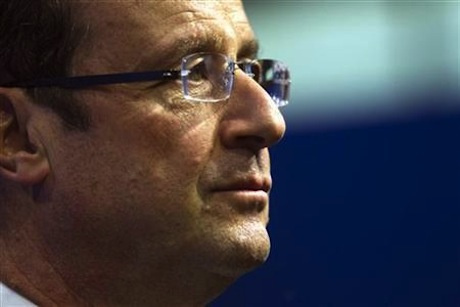What is the “Silent Socialist's” approach towards Tehran?
Hollande's victory: An opportunity for Iran

Ahmad Naghibzadeh: The main characteristic which makes this election different from others is related to the first round. In the run-off elections, the right and the left always face each other, and this was the case in this election as well. But in the first round, the radical right received more than 18% of the votes, while it was always the Communist party that attracted this kind of percentage. Economic conditions have also impacted this election compared to previous ones and have caused supporters of the left and the right to support their candidates more strongly and intensely.
ID: In your view, what are the most important reasons behind the victory of Francois Hollande over Sarkozy? Did the people of France vote for Hollande to say “No" to Sarkozy, or did they welcome Hollande's programs?
AN: It can be said that the votes which Hollande received in the first round were the votes of the leftists and his votes in the second round were due to the "No"s of many French people to Sarkozy. Hollande has no serious and practical political background, and is considered a beginner from political and executive aspects. On the contrary, Sarkozy had held several ministerial positions before his presidency. This issue gives rise to the question of whether Hollande is a practical politician or not.
ID: What will Europe's reaction be to the election of Francois Hollande? Will his victory have a serious impact on the position of the European Union?
AN: It is obvious that the European Union welcomes people's votes, and many people from the Socialist Party have reached power before and there has been no problem. It must be noted that the positions of Hollande regarding the EU are not radical, but his priorities are domestic economic issues and the job market. What can be said now is that it is unlikely that Hollande will sacrifice France's interests for the EU's interests. For example, it is not likely that he will agree to give huge loans to Greece and countries on the verge of bankruptcy.
ID: With Hollande's presidency, what changes should we expect in France's foreign policy, especially on Middle East issues?
AN: Certainly, Sarkozy's adventurism in the Middle East, as in attacking Libya, will not be repeated. It also seems that blindly following US policies will be diminished. But it is unlikely that France's support of Israel will change. This is because since the 19th century Jews have had tremendous influence on the Socialist Party and this influence continues today. In general, Hollande is wiser and has more prestige than Sarkozy, and France's support for the Palestinians will probably increase.
ID: What will the changes be, do you think, in France's position regarding issues related to Iran; particularly, Iran's nuclear issue and negotiations with Iran during the new president’s tenure?
AN: Hollande's victory must be considered as an opportunity for the Islamic Republic. France will be distanced from the US and from adventurism, and taking harsher stances than even the US over Iran's nuclear issue will end; all these will all be to Iran's advantage. But assuming that France will give special support to Iran in this matter is totally wrong. Iran must right now help Hollande in solving the country's problems, such as unemployment and the economic crisis, and offer plans to France to come out of its dead end, while achieving its own interests.

